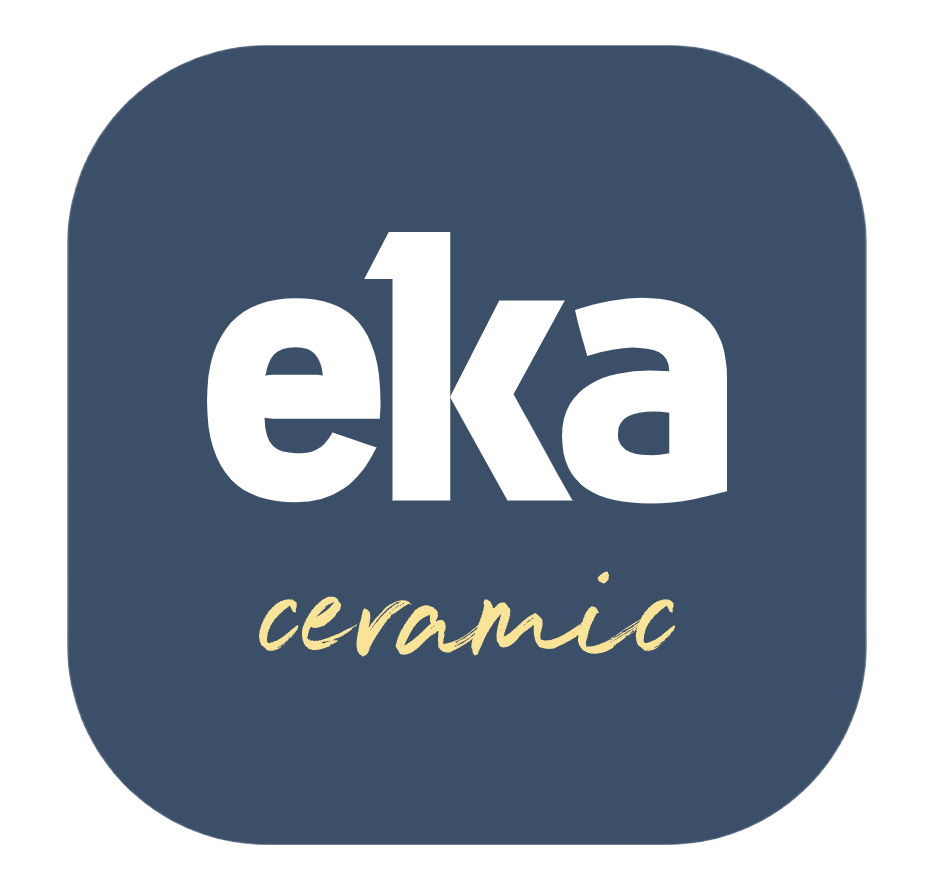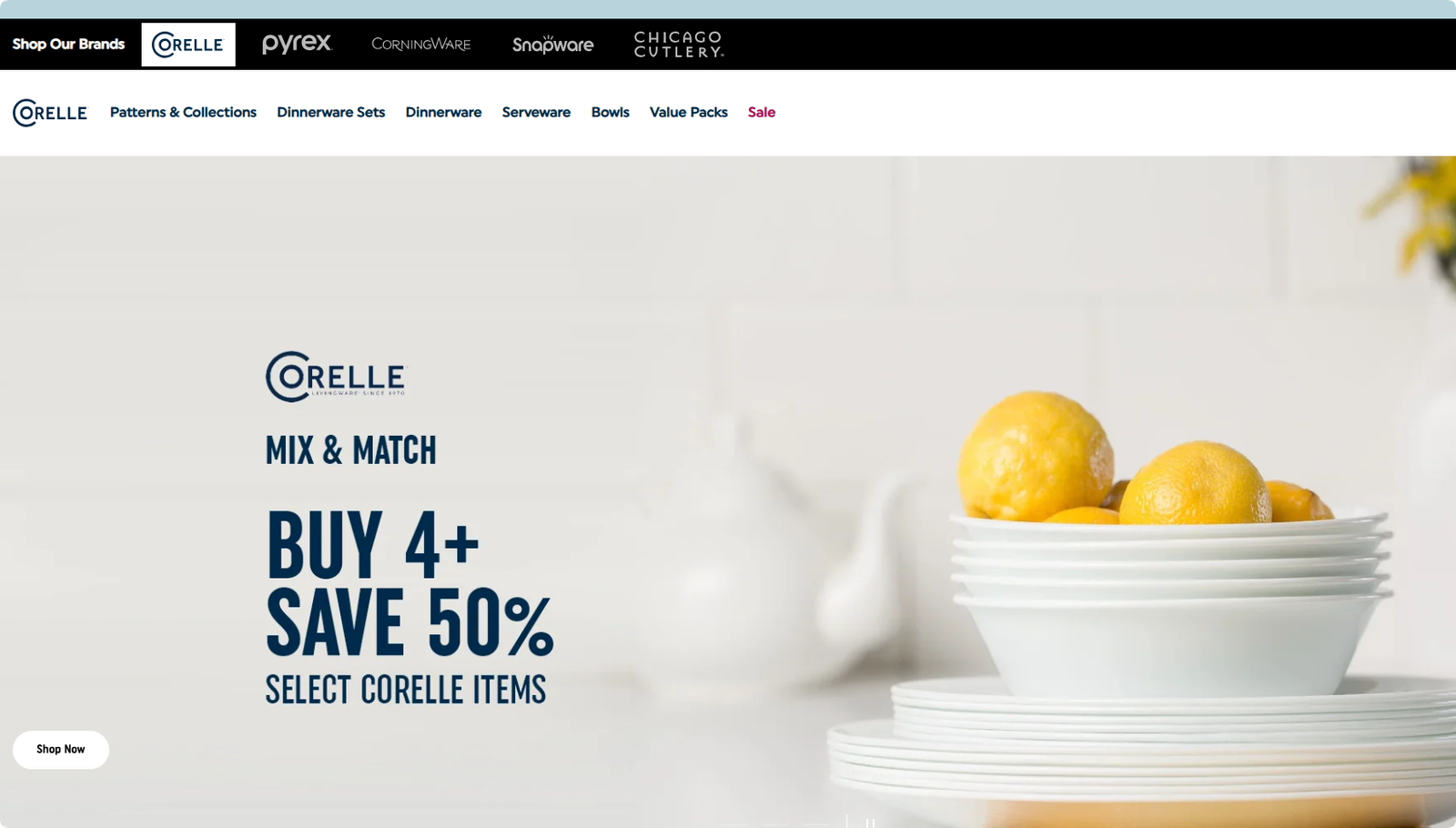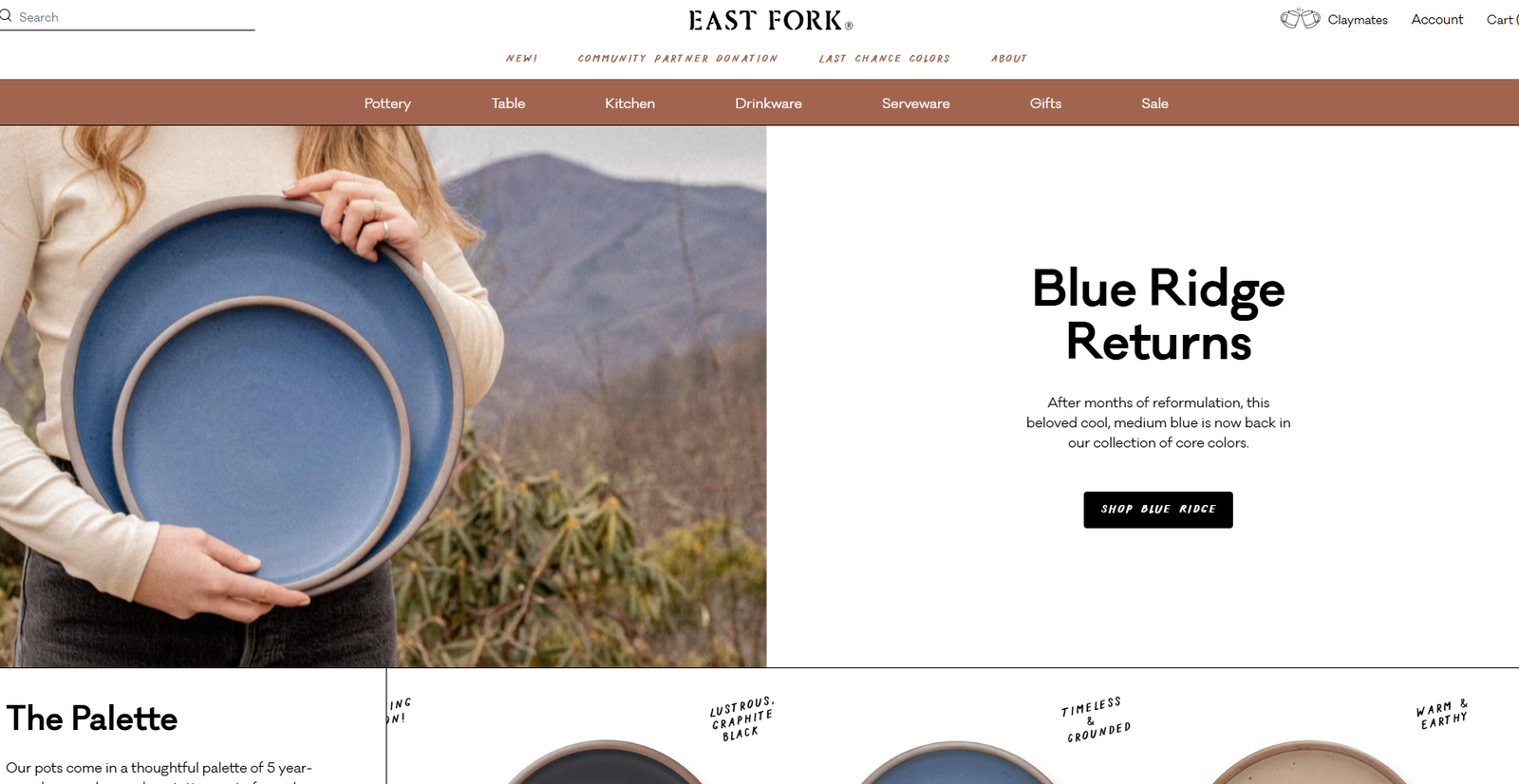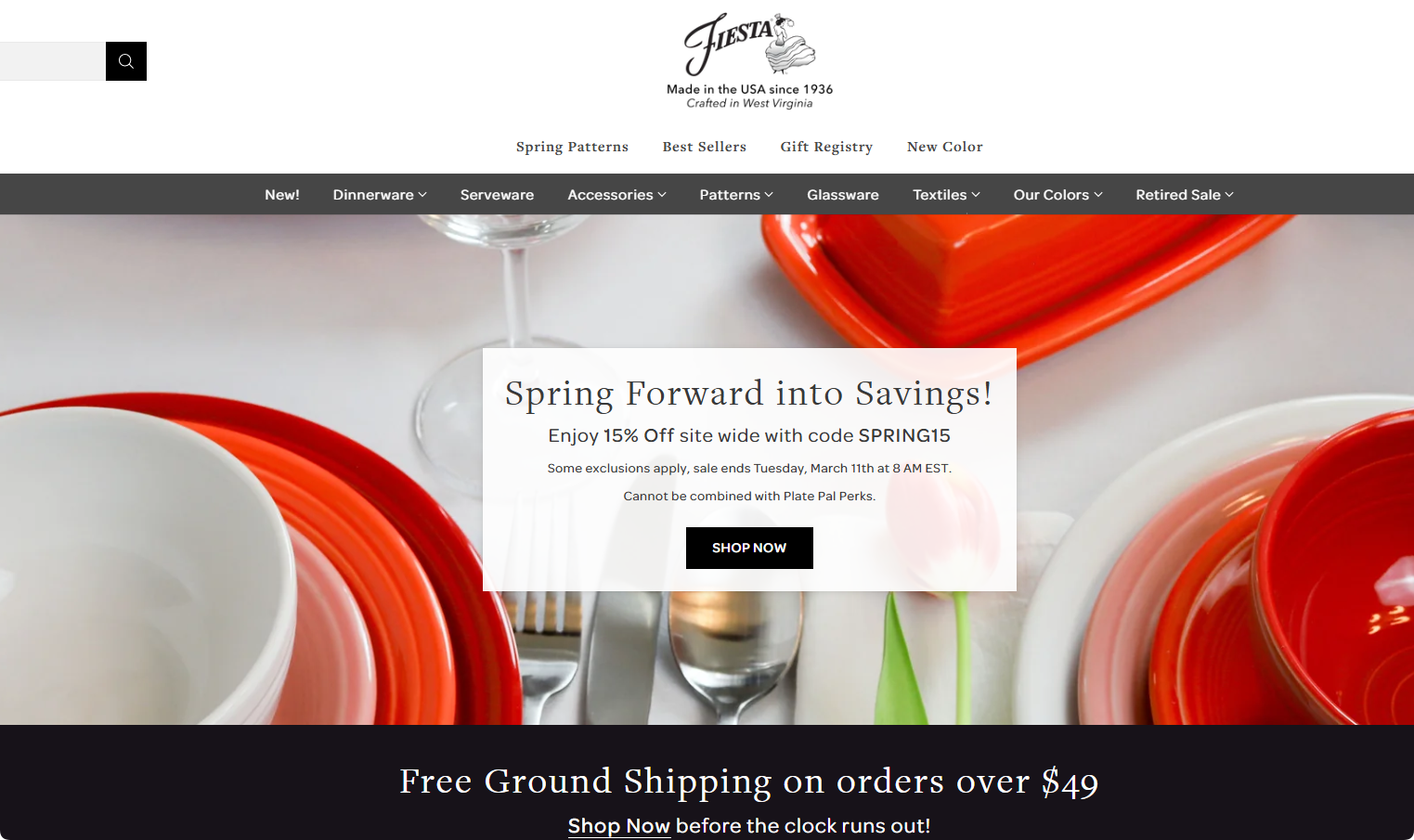The US home goods market is constantly evolving, with consumers seeking not just functional ceramic tableware but also designs that reflect their lifestyle and dining aesthetics. In 2025, several trends are shaping the demand for ceramic tableware, influencing purchasing decisions across households, restaurants, and even cross-border e-commerce sellers. From sustainability to minimalist aesthetics, understanding these trends is crucial for kitchenware buyers and brands looking to tap into this dynamic market.
Let’s explore the latest ceramic tableware trends in the US and what makes certain designs and features more desirable to consumers.
1. Sustainability Takes Center Stage
Consumers in the US are becoming increasingly eco-conscious, and this shift has significantly impacted the ceramic tableware market. Buyers are now prioritizing tableware made from sustainable raw materials, lead-free glazes, and energy-efficient production methods.
Key sustainable features in ceramic tableware:
- Recycled or natural materials – Brands are using eco-friendly clay and glazes that minimize environmental impact.
- Lead-free & cadmium-free glazes – Health-conscious consumers demand chemical-free tableware.
- Energy-efficient kilning – Factories that reduce carbon footprints attract more environmentally aware buyers.
Example: Many high-end brands in the US now highlight their sustainability efforts in marketing, attracting eco-conscious customers who prioritize ethically produced tableware.
2. The Rise of Handmade & Artisanal Aesthetics
Handmade and hand-painted ceramic tableware is gaining traction in the US home goods market as consumers seek uniqueness in their dining setups. Unlike mass-produced designs, artisanal ceramic dishes with irregular edges, textured surfaces, and natural color variations are highly sought after.
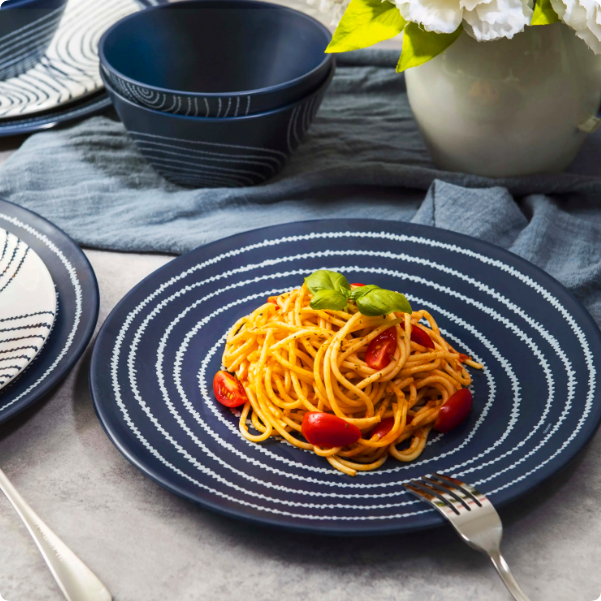
🔹 Why is handmade tableware popular?
- It offers a unique, one-of-a-kind feel.
- Appeals to the trend of “imperfection beauty” (wabi-sabi aesthetic).
- Gives a personal and warm touch to dining experiences.
Trending Product Example: Many US brands now incorporate traditional crafting techniques, such as hand-thrown pottery or reactive glaze finishes, to create visually appealing dinnerware sets.
3. Minimalist & Modern Styles Dominate
While handcrafted designs appeal to niche audiences, minimalist and modern ceramic tableware remains a top choice for mainstream buyers. Neutral colors like white, beige, and gray, along with simple geometric shapes, define this trend.
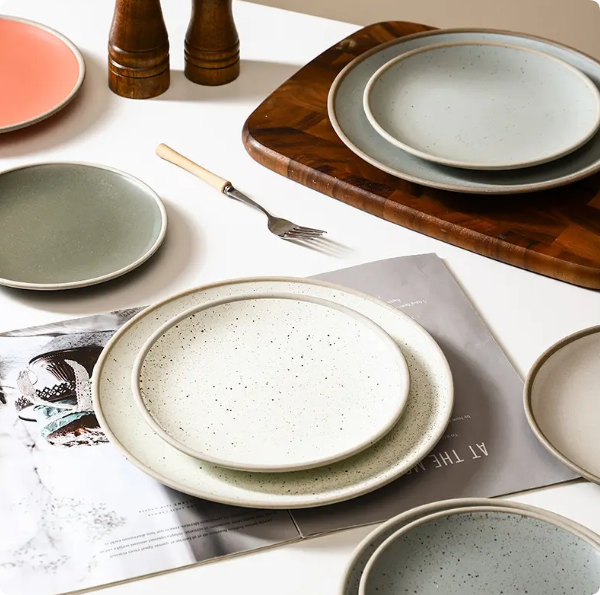
⭐ Popular Minimalist Ceramic Tableware Features:
- Monochrome color palettes
- Sleek, matte-finish ceramics
- Stackable & space-saving designs
- Subtle embossed textures
This style is particularly favored by restaurants and home chefs, who prefer versatile dinnerware that complements various plating styles.
Example: Scandinavian-inspired ceramic dinner plates with soft curves and matte textures are a staple in many US households today.
4. Mix-and-Match Tableware Sets
Gone are the days of uniform, matching dinnerware sets. The latest trend in the US market is mix-and-match tableware, where consumers combine different colors, shapes, and textures to create a more dynamic dining presentation.
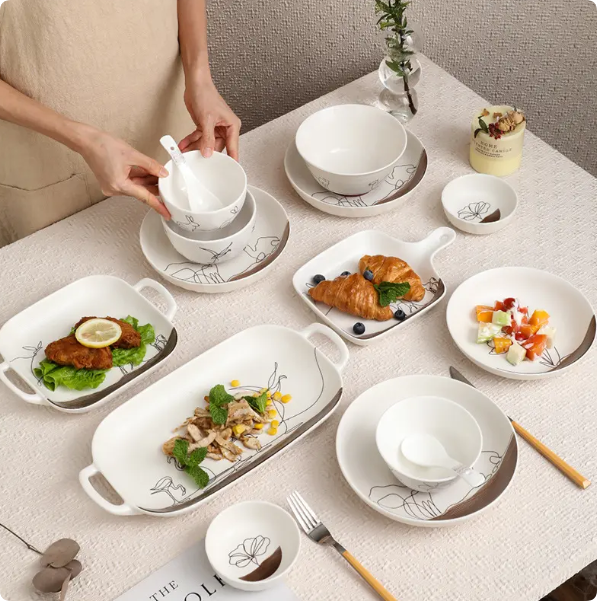
📌 How buyers are styling mix-and-match tableware:
- Blending earthy tones with pastel hues.
- Combining matte and glossy finishes for contrast.
- Mixing round, oval, and square plates for an artistic table setting.
Retailers and suppliers now offer individual ceramic pieces rather than just full sets, allowing customers to customize their collections.
5. Top Ceramic Tableware Brands in the US
The US market is home to several well-known ceramic tableware brands that set industry trends. Below are five major brands and their signature styles:
| Brand | Key Features | Popular Products |
|---|---|---|
| Fiesta | Vibrant colors, vintage Americana style | Colorful dinner plates, bowls |
| Lenox | Elegant fine china, premium craftsmanship | Porcelain dinnerware sets |
| Corelle | Lightweight, durable, chip-resistant glass-ceramic blend | Everyday casual dishware |
| East Fork | Handmade pottery, rustic and modern designs | Hand-thrown ceramic plates |
| Heath Ceramics | Mid-century modern aesthetic, artisanal production | Stoneware bowls, mugs |
These brands cater to different segments of the US market, from affordable everyday use (Corelle, Fiesta) to premium artisanal tableware (Heath Ceramics, East Fork).
6. Functional & Multipurpose Tableware
Modern consumers look for ceramic tableware that serves multiple functions. A growing number of designs feature oven-to-table or microwave-safe properties, making meal prep and serving more convenient.
🎯 Trending Functional Ceramic Tableware Features:
- Oven-safe baking dishes that double as serving platters.
- Stackable bowls for space-saving storage.
- Multi-use dinner plates that work for both casual and formal settings.
With many people cooking at home more often, brands that highlight durability and multifunctionality in their ceramic tableware gain a competitive edge.
7. Smart Integration: Tech-Enabled Tableware
Though still in its early stages, smart ceramic tableware is an emerging trend. Certain brands are experimenting with heat-retaining ceramics or RFID-enabled plates that sync with smart kitchen appliances.
🔹 Potential Future Trends in Smart Tableware:
- Temperature-regulating ceramic cups for longer heat retention.
- Embedded sensors that track food consumption for dietary apps.
- Self-cleaning ceramic coatings to repel stains and bacteria.
While not yet widespread, these innovations could shape the next wave of ceramic tableware trends in the US.
FAQs: People Also Ask
Q1: What ceramic tableware is best for everyday use?
Look for chip-resistant, dishwasher-safe, and lead-free ceramic tableware. Brands like Corelle and Fiesta are excellent for daily meals due to their durability and lightweight design.
Q2: What are the safest ceramics for food?
The safest ceramic tableware is lead-free, cadmium-free, and made from non-toxic glazes. Many premium brands now ensure compliance with FDA food safety standards.
Q3: Are handmade ceramics microwave-safe?
It depends on the glaze and clay type. Some handmade ceramics are microwave-safe, while others with certain glazes may not withstand high temperatures.
Q4: What is the difference between porcelain and stoneware?
- Porcelain: Lightweight, refined, often translucent, best for fine dining.
- Stoneware: More durable, heavier, and rustic, ideal for everyday use.
Q5: Why is artisanal ceramic tableware so expensive?
Handmade ceramics require skilled craftsmanship, longer production times, and unique design elements, making them pricier than mass-produced options.
Final Thoughts
The US ceramic tableware market continues to evolve with sustainability, artisanal craftsmanship, and functional innovations driving consumer choices. Buyers—whether in retail, hospitality, or e-commerce—should stay ahead by sourcing versatile, stylish, and durable ceramic tableware that aligns with these trends.
By incorporating eco-friendly materials, modern designs, and mix-and-match aesthetics, ceramic tableware brands can appeal to the diverse preferences of US consumers in 2025.
Would you like to explore custom OEM/ODM ceramic tableware solutions to match these trends? Let’s connect!
